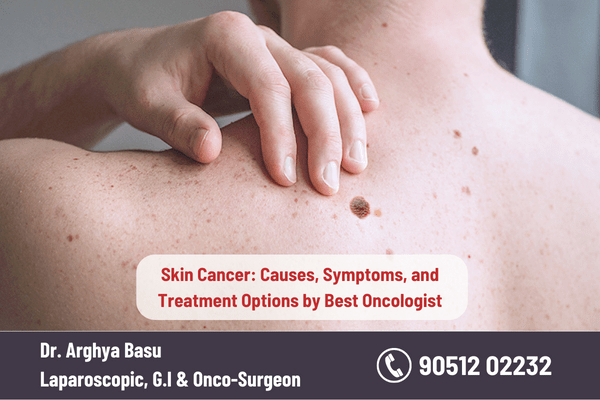Skin Cancer: Causes, Symptoms, and Treatment Options by Best Oncologist

Skin cancer is a common type of cancer that develops due to the abnormal growth of skin cells. It is primarily caused by overexposure to ultraviolet (UV) radiation from the sun or artificial sources, such as tanning beds. Skin cancer can affect people of all ages, although it is more commonly diagnosed in individuals who spend significant time in the sun or have a history of sunburns. Get in touch with the Best chemotherapy Doctor available to treat skin cancer.
There are several types of skin cancer, including basal cell carcinoma (BCC), squamous cell carcinoma (SCC), and melanoma. BCC and SCC are more common and have a higher cure rate compared to melanoma, which is more aggressive and can spread to other parts of the body.
Finding the Best Oncologist for Skin Cancer
If you have been diagnosed with skin cancer, it is crucial to seek the expertise of the best oncologist specializing in skin cancer. An experienced best oncologist will provide you with the highest level of care, accurate diagnosis, and personalized treatment options.
When searching for the best oncologist, consider the following factors:
Credentials and expertise: Look for an oncologist who is board-certified and has extensive experience in treating skin cancer. Check their educational background, training, and any additional certifications related to skin cancer treatment.
Reputation and patient reviews: Read online reviews and testimonials from previous patients to gauge the oncologist’s reputation. Pay attention to feedback regarding their bedside manner, communication skills, and success rates in treating skin cancer.
Collaborative approach: Look for an oncologist who adopts a collaborative approach and involves a multidisciplinary team in your treatment plan. This may include dermatologists, surgeons, pathologists, and radiation oncologists, working together to provide comprehensive care.
Remember to consult with your primary care physician, friends, or family members for recommendations as well. They may have firsthand experience or know someone who has received exceptional care for skin cancer.
Understanding the Role of Chemotherapy in Skin Cancer Treatment
Chemotherapy is a treatment option that uses drugs to destroy cancer cells. While it is not the primary treatment for most types of skin cancer, it can be effective in certain cases, such as advanced melanoma or when cancer has spread to other parts of the body.
When considering chemotherapy for skin cancer treatment, it is crucial to consult with a skilled surgeon specializing in this procedure. A surgeon experienced in administering chemotherapy will ensure accurate dosing, minimize side effects, and monitor your progress closely.
Chemotherapy works by targeting rapidly dividing cancer cells throughout the body. The drugs can be administered orally, intravenously, or topically, depending on the specific type and stage of skin cancer.
While chemotherapy can be an effective treatment option, it may also cause side effects such as hair loss, nausea, fatigue, and increased susceptibility to infections. Your oncologist and chemotherapy surgeon will carefully assess your overall health and develop a personalized treatment plan tailored to your specific needs.
In conclusion, skin cancer is a prevalent condition that requires specialized medical care. Finding the oncologist and, if necessary, a skilled chemotherapy surgeon is crucial in ensuring accurate diagnosis, effective treatment, and optimal outcomes for patients with skin cancer. Remember to seek medical advice promptly if you notice any suspicious skin changes or have concerns about your skin health.
FAQ
1. What are the most serious types of skin cancer?
The most serious types of skin cancer include melanoma, which can spread to other parts of the body if not detected and treated early. Other serious types are Merkel cell carcinoma and certain subtypes of squamous cell carcinoma that have a higher likelihood of metastasizing. Prompt recognition plays a crucial role in the efficient management of medical conditions.
Read More →